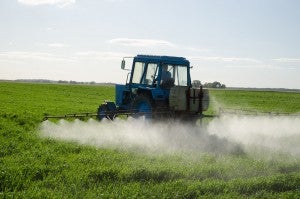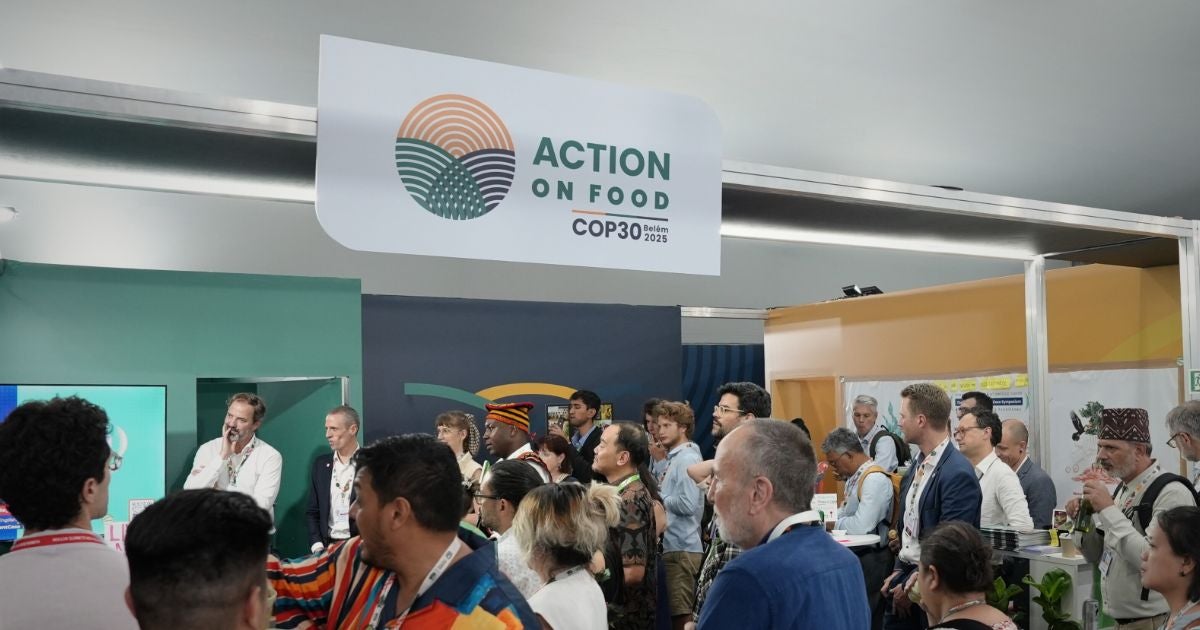Organic or conventional. Which production system can feed the world sustainably?
 Organic. Conventional. Locally grown. And the list goes on. The seemingly age-old debate of what system can best feed and sustain the planet is again at the front of my mind on National Ag Day.
Organic. Conventional. Locally grown. And the list goes on. The seemingly age-old debate of what system can best feed and sustain the planet is again at the front of my mind on National Ag Day.
When I spoke at a recent Food Entrepreneurship Symposium event at Princeton University, an audience member asked me if organic is the best path forward to feed the planet sustainably. At Commodity Classic in New Orleans earlier this month, I spoke with growers about whether conventional ag is the way to feed a growing population.
My answer: there is no silver bullet when it comes to sustainable agriculture. There is no single system, no one-size-fits-all prescription that can solve our food security and environmental sustainability challenges.
That’s why we cannot afford to shut the door on any idea, or on any system of food production. Here’s how organic and conventional compare on yields and environmental impacts, and why we need both systems, local and global production, and big and small farms in order to protect food security and the planet.
Yield and intensification
To feed 9 billion people by 2050, we will undoubtedly need higher yields and in some places, intensified production. Which system comes out ahead? It depends:
- In more agriculturally developed regions like North America and Europe, research has shown at least a 20 percent reduction in yield for organic compared to conventional.
- Some studies have shown that when best practices are used, organic yields are only 13 percent lower than conventional methods.
- In other landscapes, organic farming can out-perform conventional farming in terms of yield. Some areas – in particular sub-Saharan Africa – lack access to adequate conventional crop inputs, or farmers face economic risk in purchasing those inputs – but yield gaps can diminish by utilizing organic sources of nutrients or non-chemical pest and weed control methods, which may be more readily accessible.
- There are also places where conventional comes out the yield winner and allows farmers to intensify productivity on existing lands, thereby avoiding cultivation of more marginal and environmentally sensitive lands.
Environmental outcomes

The debate over the environmental outcomes of organic compared to conventional agriculture has also been extensive, and often contradictory. As is often true, it likely comes down to your metric. Several meta-analyses in the past decade have shown lower environmental impacts from organic on a per unit area basis, but a better outcome environmentally for conventional on a per unit product basis.
And it all depends how things are done. For example, all farmers have to deal with weeds and bugs. Conventional farmers can use synthetic herbicides and pesticides to keep these at bay to protect their crops. If they manage these inputs poorly, they can contribute to climate and water pollution and health concerns. If used efficiently, those same herbicides and pesticides can make it easier for farmer to adopt no-till and other practices that bring a net benefit to the environment when soil gets healthier, erosion slows, and water and air quality improves.
Organic farmers cannot use synthetic inputs, so may turn to frequent mechanical weeding, which can be done really well, or lead to negative impacts on nesting birds, worms and invertebrates and even higher use of fossil fuels, thereby increasing pollution from nitrogen oxides.
In organic systems, getting crop nutrients from manure is beneficial to soils. But poorly managed manure can lead to water quality, odor, and health problems. And the challenges of managing manure – weight, inconsistencies in nutrient and solids content, and limited options for application – can make it harder than using synthetic fertilizer. When applied precisely, synthetic fertilizer can reduce nutrient loss and impacts to water and air.
All production systems can improve
“I don’t think that either organic or conventional is ‘better.’ They are different approaches to growing food, each with their pros and cons, and each representing a different trade-off. Why not take the best of both worlds?”
-Jonathan Foley, Executive Director of the California Academy of Sciences
Jonathan Foley, former director of the Institute on the Environment at the University of Minnesota and now Executive Director of the California Academy of Sciences, captured it well when he said:
“I don’t think that either organic or conventional is ‘better.’ They are different approaches to growing food, each with their pros and cons, and each representing a different trade-off. Why not take the best of both worlds?”
All farmers, whether organic or conventional, can and should pursue practices and innovations that enable them to build soil health, improve nutrient use efficiency, reduce impacts to water and climate, while sustaining and increasing yields.
In the end, we need to focus on a farm’s environmental performance, not its size or its production method.












